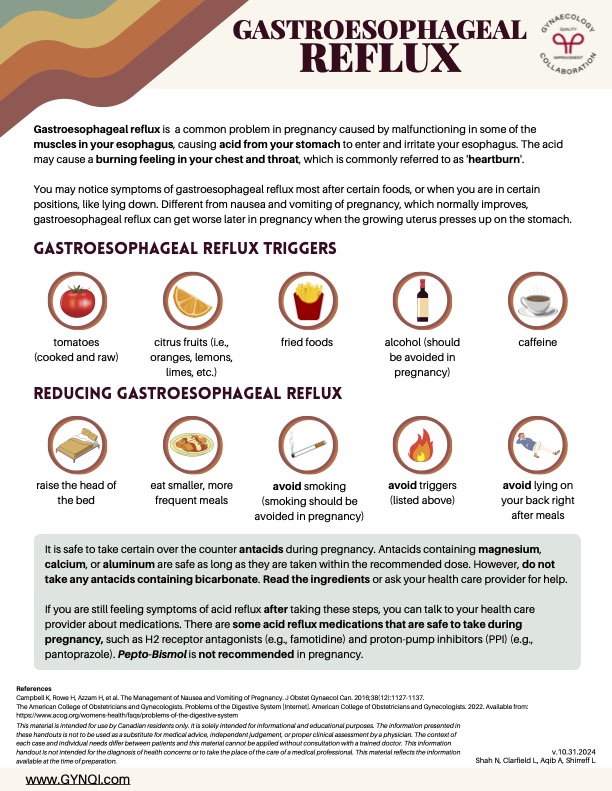
Gastroesophageal Reflux
Gastroesophageal reflux is a common problem in pregnancy caused by malfunctioning in some of the muscles in your esophagus, causing acid from your stomach to enter and irritate your esophagus. The acid may cause a burning feeling in your chest and throat, which is commonly referred to as ‘heartburn‘.
You may notice symptoms of gastroesophageal reflux most after certain foods, or when you are in certain positions, like lying down. Different from nausea and vomiting of pregnancy, which normally improves, gastroesophageal reflux can get worse later in pregnancy when the growing uterus presses up on the stomach.
Gastroesophageal Reflux Triggers
- Tomatoes (cooked and raw)
- Citrus fruits (i.e., oranges, lemons, limes, etc.)
- Fried foods
- Alcohol (should be avoided in pregnancy)
- Caffeine
Reducing Gastroesophageal Reflux
- Raise the head of the bed
- Eat smaller, more frequent meals
- Avoid smoking (smoking should be avoided during pregnancy)
- Avoid triggers (listed above)
- Avoid lying on your back right after meals
It is safe to take certain over the counter antacids during pregnancy. Antacids containing magnesium, calcium, or aluminum are safe as long as they are taken within the recommended dose. However, do not take any antacids containing bicarbonate. Read the ingredients or ask your health care provider for help.
If you are still feeling symptoms of acid reflux after taking these steps, you can talk to your health care provider about medications. There are some acid reflux medications that are safe to take during pregnancy, such as H2 receptor antagonists (e.g., famotidine) and proton-pump inhibitors (PPI) (e.g., pantoprazole). Pepto-Bismol is not recommended in pregnancy.



